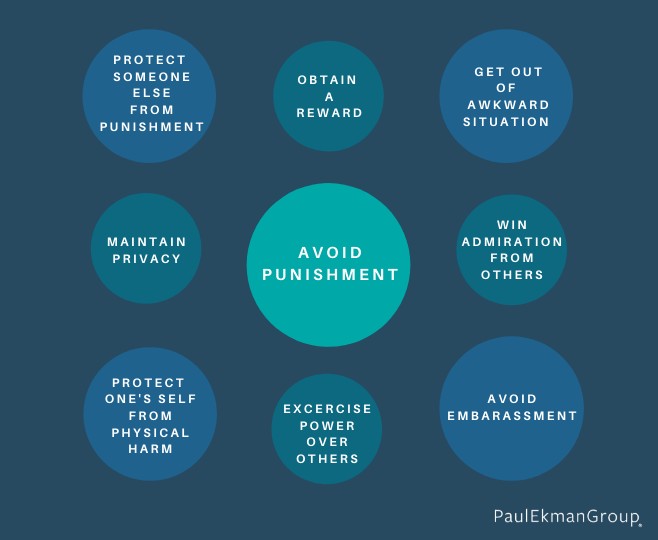Lying is a complex human behavior with a variety of underlying causes. While seemingly simple, the question “Why Do Adults Lie?” has no easy answer. Research suggests, however, that most adults share common motivations for their deceptions. This article explores nine key reasons why people tell lies, drawing upon data collected from interviews and questionnaires.
 alt text describing image of words associated with lying.
alt text describing image of words associated with lying.
Nine Reasons Why People Lie
Research indicates nine primary motivations behind lying:
1. Avoiding Punishment
The most common reason for lying, cited by both children and adults, is to avoid punishment. This applies to intentional wrongdoing as well as honest mistakes. People often resort to lies to escape negative consequences.
2. Obtaining Rewards
The second most frequent motive is to gain something not easily accessible through truthful means. This could include exaggerating work experience on a resume to increase the chances of landing a job.
3. Protecting Others from Punishment
Similar to avoiding personal punishment, people lie to shield others from repercussions. This protective behavior can be observed in various relationships, including those between colleagues, friends, family members, and even strangers.
4. Protecting Oneself from Harm
Distinct from avoiding punishment for a misdeed, this motive involves lying to avert a threat of physical harm. For instance, a child home alone might lie to a stranger at the door, claiming a parent is asleep to deter potential danger.
5. Gaining Admiration
Lying to enhance one’s social standing can range from minor embellishments to outright fabrications. People might tell “little white lies” to make stories more entertaining or even construct entirely false personas to impress others.
6. Escaping Awkward Situations
Lies can provide an escape route from uncomfortable social interactions. Examples include feigning a babysitter emergency to leave a boring party or pretending someone’s at the door to end a phone call.
7. Avoiding Embarrassment
Lying can be a way to prevent humiliation. A child claiming a spilled drink caused a wet seat, rather than admitting to an accident, exemplifies lying to avoid embarrassment rather than punishment.
8. Maintaining Privacy
People sometimes lie to safeguard their privacy without explicitly stating their intentions. For instance, a couple might falsely claim to have eloped due to financial constraints to avoid inviting family to their wedding.
9. Exercising Power
The most dangerous motive for lying involves manipulating information to control others. This type of deception, exemplified by historical figures like Hitler, can have devastating consequences.
Beyond the Nine Motives
While these nine reasons encompass many instances of lying, other motivations exist. Politeness or tact can lead to minor deceptions that don’t neatly fit these categories. However, these nine motivations provide a solid framework for understanding the common reasons behind lying. Understanding these motives can offer insights into human behavior and help individuals navigate social interactions more effectively. Learning to recognize the signs of deception, such as microexpressions – fleeting involuntary facial expressions – can further enhance one’s ability to detect dishonesty.